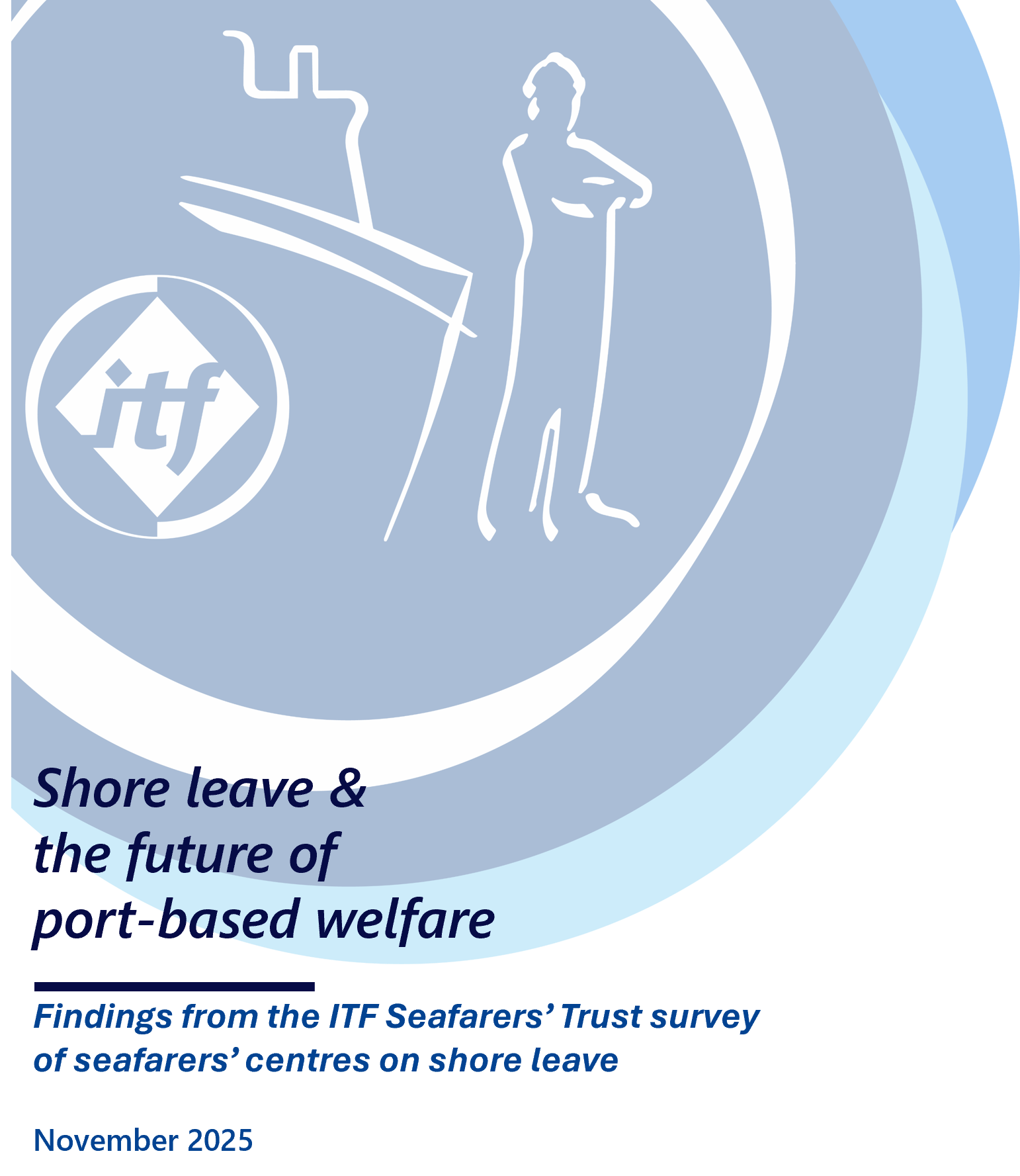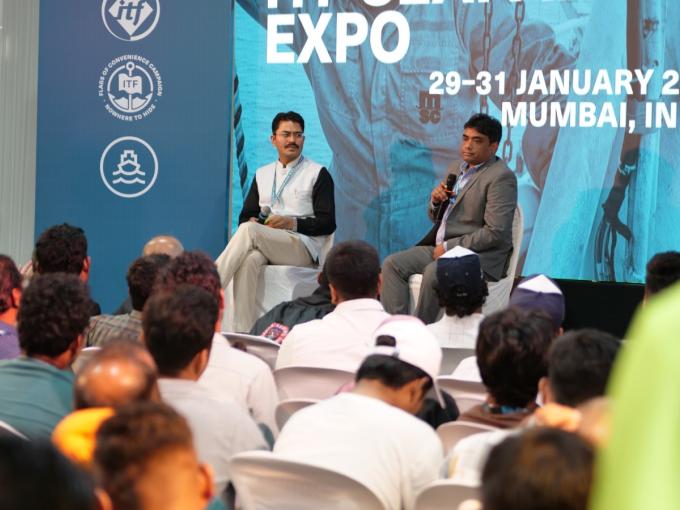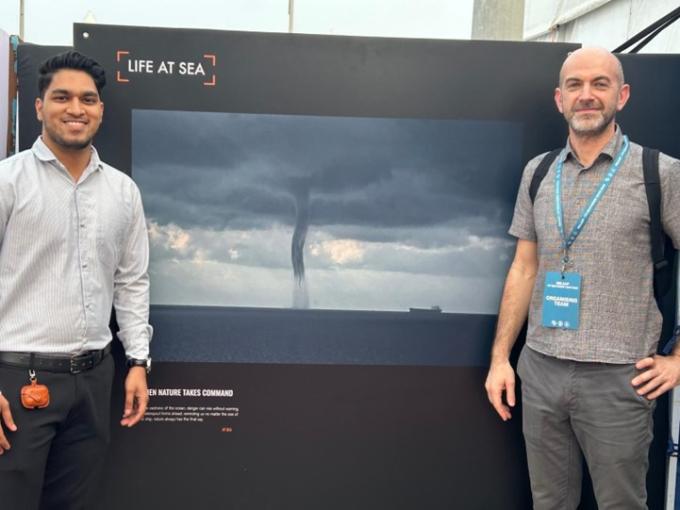
PRESS RELEASE
For immediate release
05 November 2025
What future for shore leave? New report on seafarers’ access to shore leave to be unveiled at Crew Connect, Manila, next week
A new study from The ITF Seafarers’ Trust confirms fears that seafarers’ access to shore leave is in decline since the pandemic. Where seafarers’ centres are visited, the stays are usually for less than 2 hours. People working in seafarers’ welfare corroborate the responses given by seafarers in a report published with World Maritime University earlier this year: the combination of workload on board and limited time in port are the main barriers making it virtually impossible for many seafarers to take shore leave.
‘Shore Leave and the Future of Port-Based Welfare’ presents the findings of a survey of people working in the field of port-based welfare and adds a different perspective to the results published in ‘Shore Leave: Rare, Brief and in Danger of Extinction’. Ninety-six responses were received from eighty-three organisations running services for seafarers in 25 countries. It finds a 61% decline in seafarers spending time ashore in seafarers’ centres since the start of the pandemic, with 68% reporting that most seafarers spend less than 2 hours in their centres. In addition to lack of time in port and heavy workload on board, port state and company restrictions feature as significant.
The port-based welfare community clearly share the frustrations of seafarers. Seafarers’ centres and service providers play a key role in the maritime welfare and wellbeing landscape. They provide a gateway for seafarers to access facilities, relieve pressure and connect with people and communities ashore. This report confirms the barriers to seafarers’ ability to take shore leave and their systemic and multiple causes.
Since the pandemic, the maritime industry has been vocal about the importance of seafarers’ welfare and wellbeing, however this is not translating into practices that facilitate shore leave. If these barriers continue unabated, the concern is of a vicious circle of decline in viable port-based welfare services due to lack of demand, and lack of demand due to loss of facilities thereby compounding the problem.
According to Katie Higginbottom, Head of the ITF Seafarers’ Trust, ‘If we take at face value the MLC regulation requiring that ‘Seafarers shall be granted shore leave to benefit their health and well-being…’, we must look to the regulators and the shipping industry to make sure that the operational and commercial factors don’t render this statement meaningless. There must be a consensus around defending seafarers’ right to shore leave and proactive efforts made to facilitate it at every opportunity.’
The report’s recommendations are a challenge to all maritime stakeholders:
- Funders, such as the ITFST, should continue to work with port-based welfare providers to support and promote adaptable, viable services where they exist and identify new possibilities for extending services within port areas.
- Regulators should review requirements around hours of work/rest and minimum safe manning to ensure that seafarers have sufficient time to take adequate rest, allowing shore leave.
- Shipping companies should ensure ‘humane conditions of labour’ (ILO constitution) on board ships and actively promote crew wellbeing, including access to shore leave, in the interest of safe operation.
- All maritime stakeholders should work together and take collective responsibility for creating conditions that facilitate seafarers’ access to shore leave.
“This report reminds us that seafarers’ welfare depends on shared responsibility. Together, welfare providers, regulators, and industry leaders must ensure that access to shore leave becomes the norm again, not the exception.” Dr. Jason Zuidema, General Secretary, International Christian Maritime Association (ICMA)
Higginbottom will be presenting highlights of the research at Crew Connect in Manila on Tuesday 11 November.
ENDS
For further information or to arrange an interview please contact:
Meike Erichsen
Project Manager
+1 (403) 614-8096
Note to editors
The ITF Seafarers’ Trust is a UK charity established in 1981, which funds programmes that advance the wellbeing of maritime workers, seafarers and their families. We are funded by the Trust’s own capital funds, and by the investment income of the Welfare Fund at the International Transport Workers’ Federation, a global federation of transport workers’ unions representing nearly 16.5 million members.
For the full report and other ITF Seafarers’ Trust publications go to:
https://www.seafarerstrust.org/publications
Seatrade Maritime Crew Connect Global is the leading industry marine crewing conference, dedicated to the issues, challenges and opportunities facing the future of seafaring.
The next edition will take place in November 2025 in Manila, the Philippines. Expect an expertly curated agenda, top industry suppliers and the return of the celebrated Crew Connect Global Awards.


